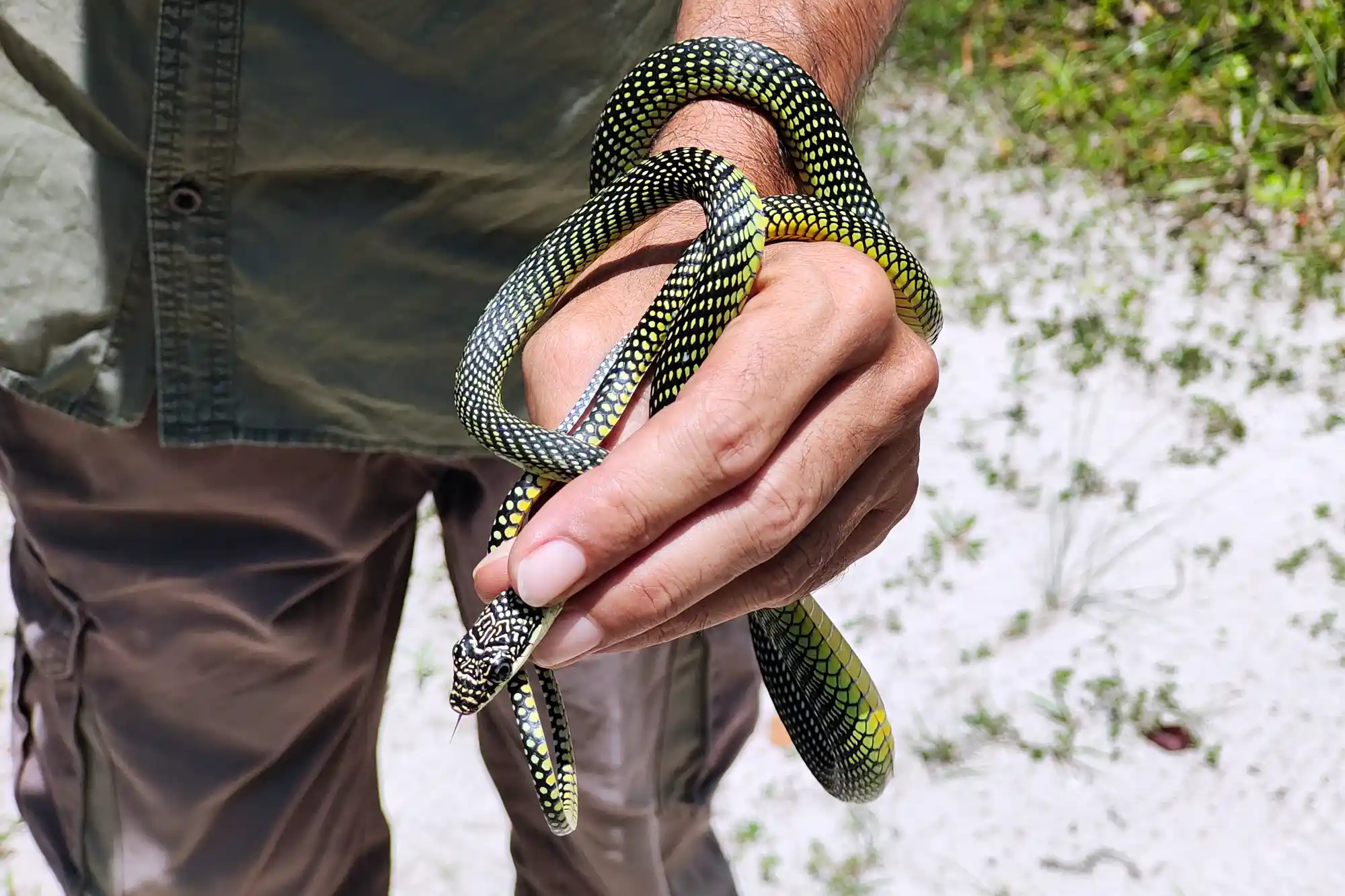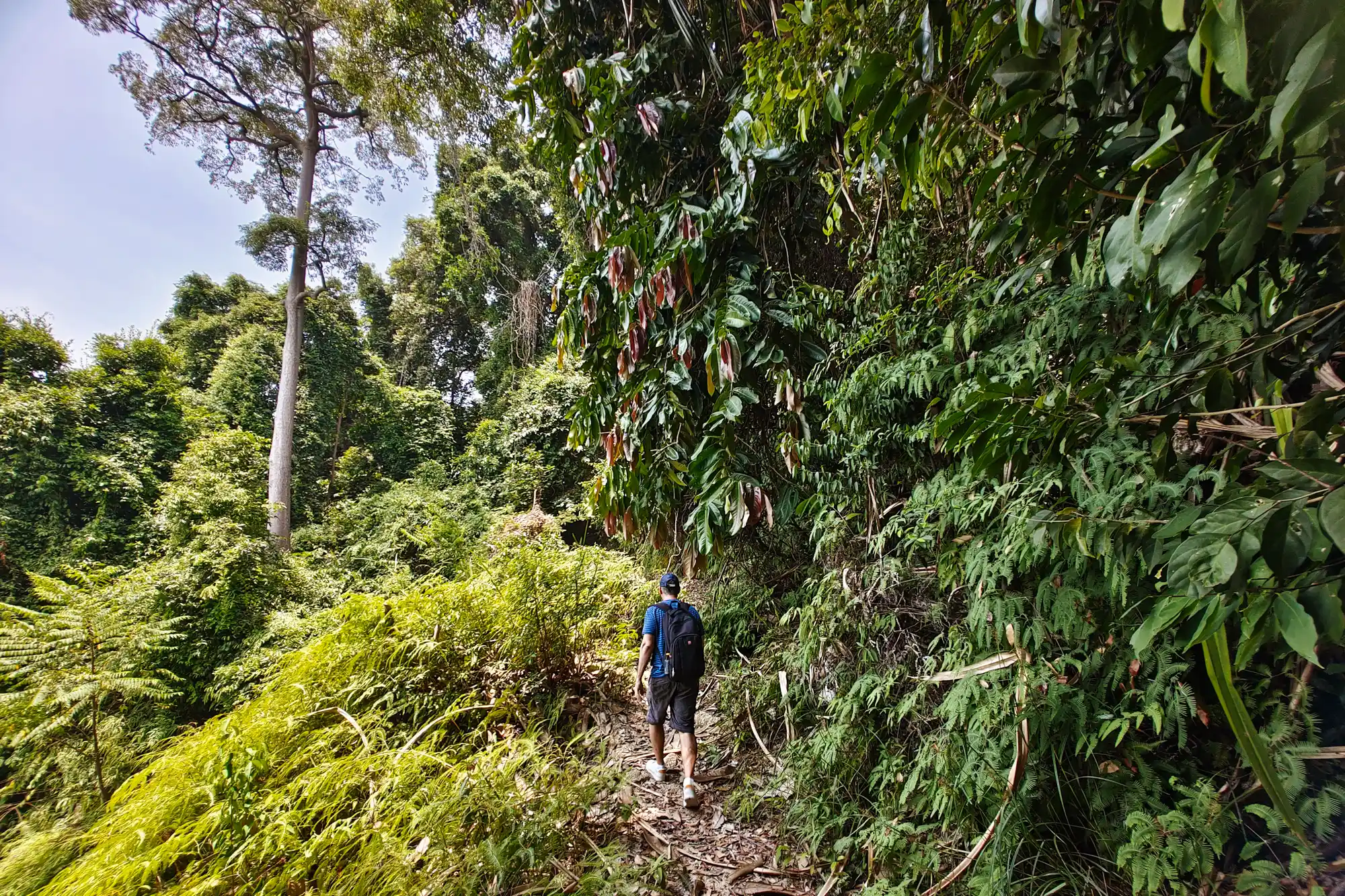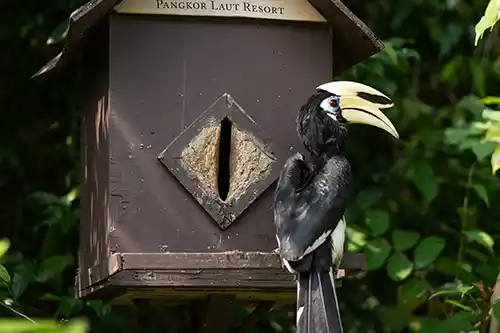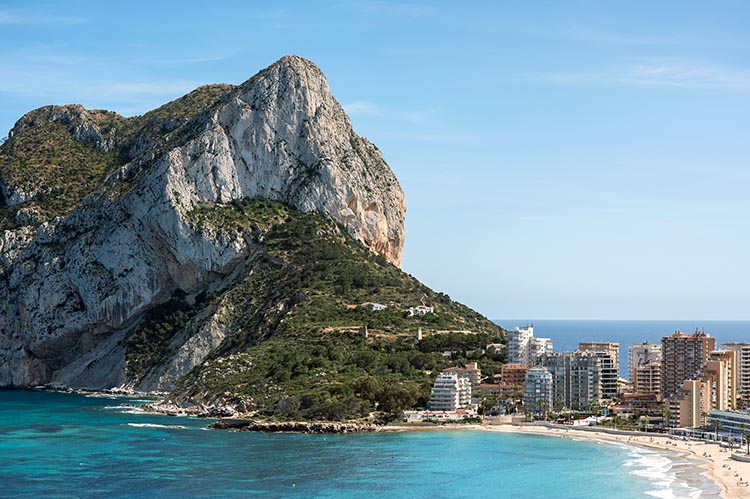For a small island of just 120 hectares, Pangkor Laut boasts a lot of nature. Creatures large and small lurk within the island’s jungle, and venture onto its beaches. During our three-night stay we were able to explore a little, and managed to spot quite a few animals, including monkeys, snakes, and warthogs.
Table of Contents

Pangkor Island Jungle Hike
On our second day on Pangkor we had planned to get up early, eat breakfast, and go on a hike as soon as possible, in order to avoid the hottest hours of the day. But if you’ve seen our previous post, breakfast at the Pangkor Laut Resort, you shouldn’t be surprised that we found it impossible to rush through our morning feast. Another omelette and pastry plate, or a slightly sweatier hike? The choice wasn’t hard.

Pangkor Laut Hiking Video
We set out on the South Loop, which leaves from the Spa Village and ends at Emerald Bay. The trail was incredible, winding through the thick jungle, and over a massive hill. Apart from a couple massive spiders and a wild boar which scurried away before we could snap a picture, we didn’t encounter any animals. But that was fine; better than crossing the path of a bunch of angry monkeys, or having a golden tree snakes fall on us. After two hours we reached Emerald Bay and rewarded ourselves with a dip in the sea. And then we rewarded ourselves even more, with ice cream and cendol (a delicious Malaysian dessert of shaved ice).
Video of Pangkor Laut Animals
Animals Encounters
Throughout our stay on Pankgor Laut, we had a lot of surprise animal encounters. There were the cheeky monkeys, a baby stingray in the ocean, a golden tree snake, a colony of giant fruit bats, bizarre hornbill birds with their unique nesting ritual, a monitor lizard taking a sunbath, sea eagles, exotic fishes, and of course we can’t forget the wild boars. The one inhabitant of Pangkor Laut we didn’t get to see was the flying lemurs, who glide from tree to tree.
Going back to the hornbills, we were fascinated not just by their unique appearance, but also their strange nesting behavior. After the female finds a tree hollow in which to nest, she and her partner block up the entrance with mud, leaving only a slit just big enough for the male pass food to the mother and hatchling. This helps protect them against predators. Also, the female loses all of her flight feathers and is basically trapped inside the nest until those feathers grow back. Once the chicks are old enough to leave, she pecks open the entrance with her beak, a task which can take several days.
The resort is so luxurious, that it was often startling to be reminded that nature still rules the show at Pangkor Laut. This is a true slice of paradise, and it’s no surprise that so many animals want to share it with us.
Stay tuned, as we have several posts coming up about the Pangkor Laut Resort. Click on the button below to subscribe to our free newsletter, so that you don’t miss any of them.
This site contains affiliate links. We may receive a commission if you make a purchase. More Information!
All Island Articles
More Photos Animals Photos
More Photos from our Hike
Most images can be licensed for commercial and editorial use, please contact us to find out more.
Pangkor Island Resort Map
Pangkor Laut Island FAQs
What are the birds on Pangkor Laut Island?
The Oriental Pied Hornbill is the iconic bird of Pangkor Laut. With its striking black-and-white plumage and vibrant yellow bill, it effortlessly captures attention as it gracefully moves through the island’s verdant canopy.
What animals are in on Pangkor Laut Island?
Keep your eyes peeled for creatures like the hornbill, a brightly colored bird with a massive casque on its bill , or the majestic sea eagle, soaring high above the island . If you’re lucky, you might even spot a playful monkey swinging through the trees! You might also spot snakes, exotic fish and wild boar.



Leave a Reply